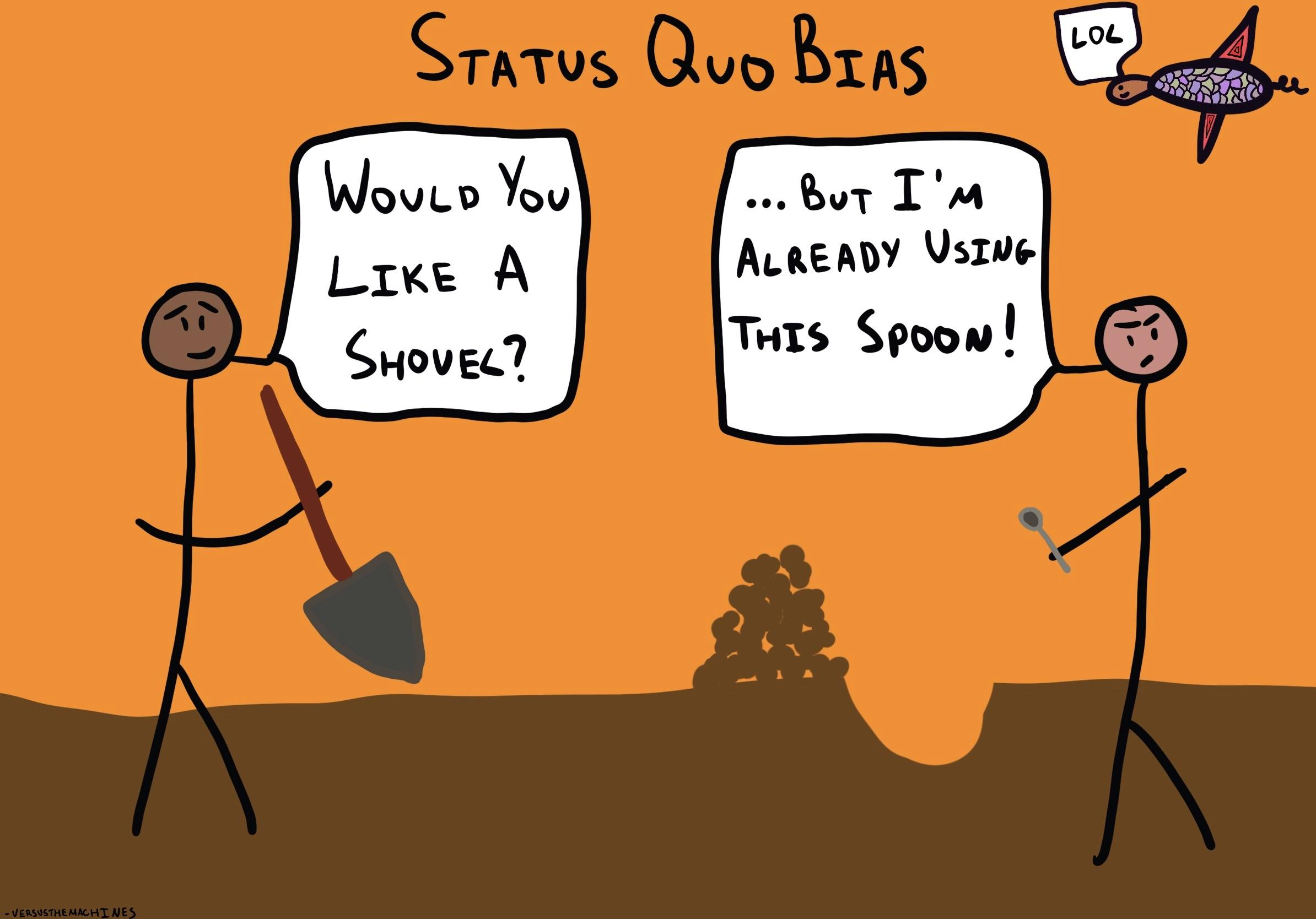Pourquoi avons-nous tendance à laisser les choses en l'état ?
Qu'est-ce que le biais du statu quo ?
Le biais du statu quo décrit notre préférence pour l'état actuel des choses, ce qui entraîne une résistance au changement.

Où ce biais se produit-il ?
Sam est une étudiante qui s'apprête à commencer un nouveau semestre. Son école l'inscrit automatiquement à une assurance médicale et dentaire. Bien sûr, il est possible d'y renoncer, ce qui réduirait le montant total de ses frais de scolarité. Sam n'est même pas sûre d'avoir besoin d'une assurance maladie, car elle est peut-être déjà couverte par l'un des plans de ses parents. Cependant, elle n'y réfléchit pas trop et paie quand même ses frais de scolarité.
Il s'agit d'un exemple de biais de statu quo, car Sam décide de laisser les choses en l'état plutôt que d'approfondir ses recherches et de choisir de ne pas bénéficier de l'assurance maladie. Si les choses étaient inversées et que l'école n'incluait pas automatiquement l'assurance dans les frais totaux, beaucoup moins d'étudiants choisiraient probablement d'être couverts. Cependant, l'école utilise le biais du statu quo à son avantage, sachant que les étudiants sont plus enclins à s'en tenir au plan initial qu'à faire des pieds et des mains pour payer moins.